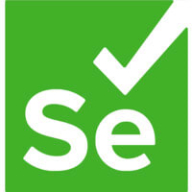

IBM DevOps Test UI and Selenium HQ compete in automated testing tools. IBM shows strength in pricing and support, while Selenium's features and community support make it highly attractive.
Features: IBM DevOps Test UI integrates well with the IBM ecosystem, offers robust testing environments, and supports enterprise-level scalability. Selenium HQ is recognized for its open-source approach, cross-browser testing, and active developer community.
Room for Improvement: IBM DevOps Test UI could enhance flexibility, improve integration with non-IBM tools, and offer more affordable options for smaller teams. Selenium HQ could benefit from improved formal support, streamlined integration with certain enterprise systems, and enhanced documentation for beginners.
Ease of Deployment and Customer Service: IBM DevOps Test UI provides seamless deployment with dedicated customer service, appealing to enterprises needing structured environments. Selenium HQ, relying on community support, may demand technical expertise for deployment.
Pricing and ROI: IBM DevOps Test UI has higher initial costs but aims for a significant ROI with its enterprise-oriented capabilities. Selenium HQ offers minimal upfront costs as an open-source tool, appealing to a broader range of budgets with its quick ROI, especially for small projects.

IBM DevOps Test UI, also known as Rational Functional Tester, is a software tool designed for automated functional and regression testing of Graphical User Interfaces (GUIs) and data-driven testing. It automates the testing process to ensure application functionalities work as intended and identifies any issues caused by new code changes. The tool is tailored for GUI testing, allowing for easy recording and playback of test cases that interact with UI elements like buttons and menus. It supports data-driven testing, enabling comprehensive tests across various data sets. Additionally, it offers visual editing features with screenshot representations for easy test creation and ScriptAssure technology to maintain test scripts even if the UI changes.
Selenium HQ is an umbrella project that includes a number of tools and frameworks that allow for web browser automation. In particular, Selenium offers a framework for the W3C WebDriver specification, a platform- and language-neutral coding interface that works with all of the main web browsers.
Selenium is a toolset for automating web browsers that uses the best methods available to remotely control browser instances and simulate a user's interaction with the browser. It enables users to mimic typical end-user actions, such as typing text into forms, choosing options from drop-down menus, checking boxes, and clicking links in documents. Additionally, it offers a wide range of other controls, including mouse movement, arbitrary JavaScript execution, and much more.
Although Selenium HQ is generally used for front-end website testing, it is also a browser user agent library. The interfaces are universal in their use, which enables composition with other libraries to serve your purpose.
The source code for Selenium is accessible under the Apache 2.0 license. The project is made possible by volunteers who have kindly committed hundreds of hours to the development and maintenance of the code.
Selenium HQ Tools
These three main Selenium HQ tools have powerful capabilities:
Reviews from Real Users
Selenium HQ stands out among its competitors for a number of reasons. Two major ones are its driver interface and its speed. PeerSpot users take note of the advantages of these features in their reviews:
Avijit B., an automation tester at a tech services company, writes of the solution, “The driver interface is really useful. When we implement the Selenium driver interface, we can easily navigate through all of the pages and sections of an app, including performing things like clicking, putting through SendKeys, scrolling down, tagging, and all the other actions we need to test for in an application.”
Another PeerSpot reviewer, a software engineer at a financial services firm, notes, “Selenium is the fastest tool compared to other competitors. It can run on any language, like Java, Python, C++, and .NET. So we can test any application on Selenium, whether it's mobile or desktop."
We monitor all Functional Testing Tools reviews to prevent fraudulent reviews and keep review quality high. We do not post reviews by company employees or direct competitors. We validate each review for authenticity via cross-reference with LinkedIn, and personal follow-up with the reviewer when necessary.